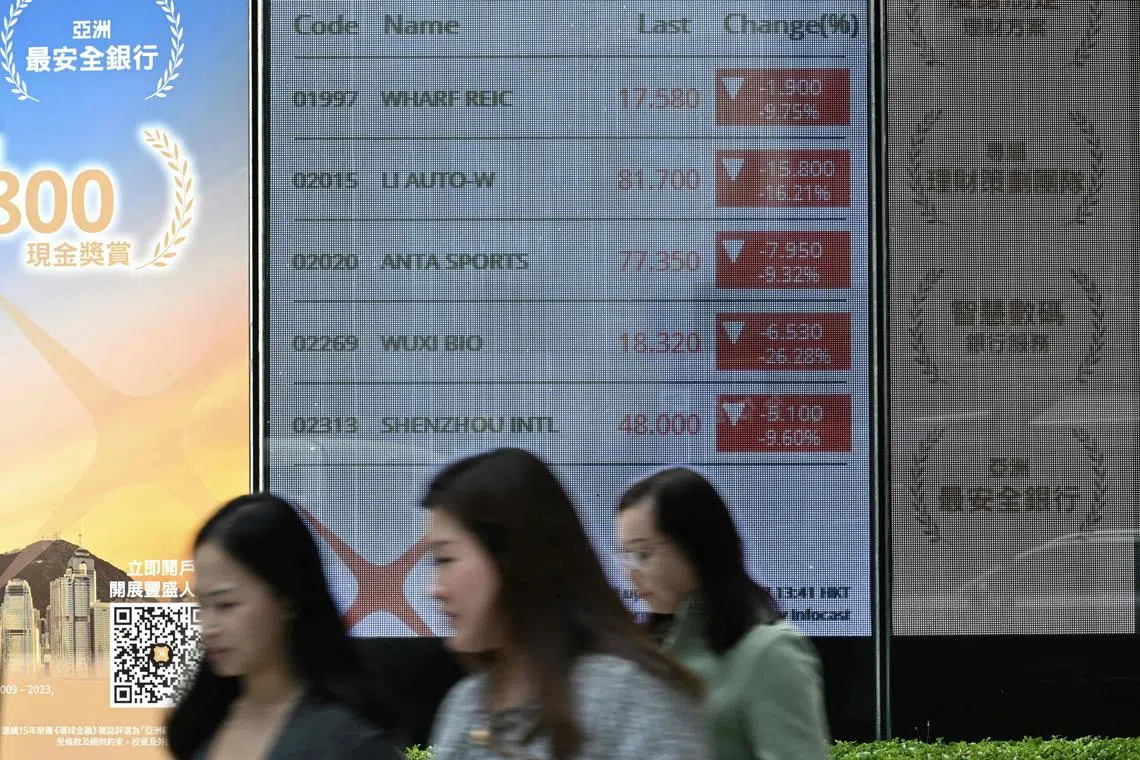China calls US tariffs ‘bullying’, urges others to continue with consultation
Sign up now: Get insights on Asia's fast-moving developments

Trading floors were overcome by a wave of selling on April 7 in response to the US-China showdown.
PHOTO: AFP
BEIJING – A top Chinese official has vowed to protect US firms and pledged his country will remain a “promising land” for foreign investment, Beijing said on April 7 after it slapped 34 per cent tariffs on US imports.
China retaliated last week
It also imposed export controls on seven rare earth elements, including gadolinium – commonly used in magnetic resonance imaging – and yttrium, which is used in consumer electronics.
Vice-Commerce Minister Ling Ji told a panel of US company representatives on April 6 that the tariffs “firmly protect the legitimate rights and interests of enterprises, including American companies”, his ministry said.
Those levies, which come into effect on April 10, “are aimed at bringing the United States back onto the right track of the multilateral trade system”, he told the representatives of firms like GE Healthcare and Medtronic.
Also present was a representative of electric vehicle giant Tesla, run by close Trump adviser and tech billionaire Elon Musk, who has extensive business interests in China.
“The root cause of the tariff issue lies in the United States,” Mr Ling said.
He urged the firms to “take pragmatic actions to jointly maintain the stability of global supply chains and promote mutual cooperation and win-win outcomes”.
The US exported US$144.6 billion (S$195 billion) in goods to China in 2024, much less than the US$439.7 billion it imported, Commerce Department data shows.
Among its exports, key sectors include electrical and electronic equipment and various fuels, alongside oilseed and grains.
Trading floors were overcome by a wave of selling
The selling in Asia was across the board, with no sector unharmed. Tech firms, carmakers, banks, casinos and energy firms all felt the pain as investors abandoned riskier assets.
Among the biggest losers, Chinese e-commerce titans Alibaba tanked more than 14 per cent and rival JD.com shed 13 per cent, while Japanese tech investment giant SoftBank dived more than 10 per cent, and Sony gave up 9.6 per cent. REUTERS


